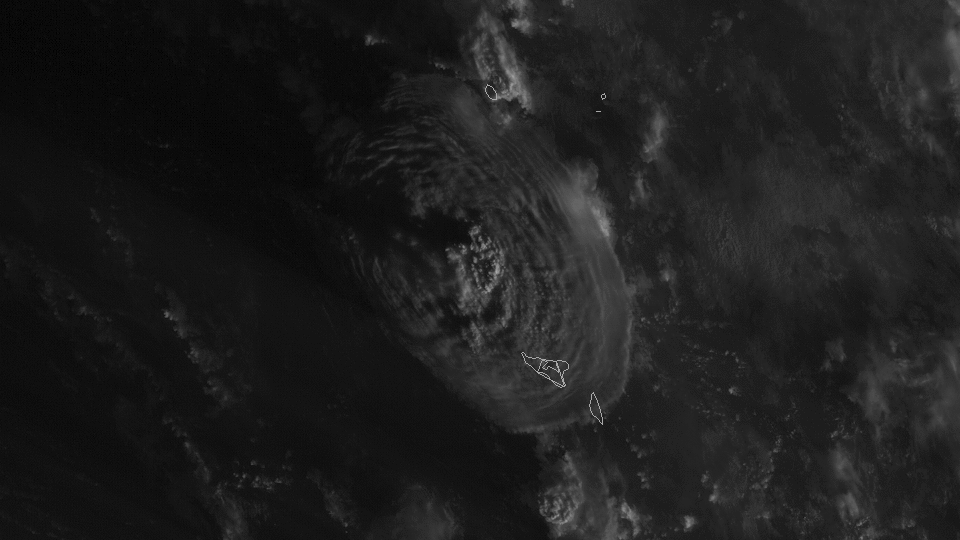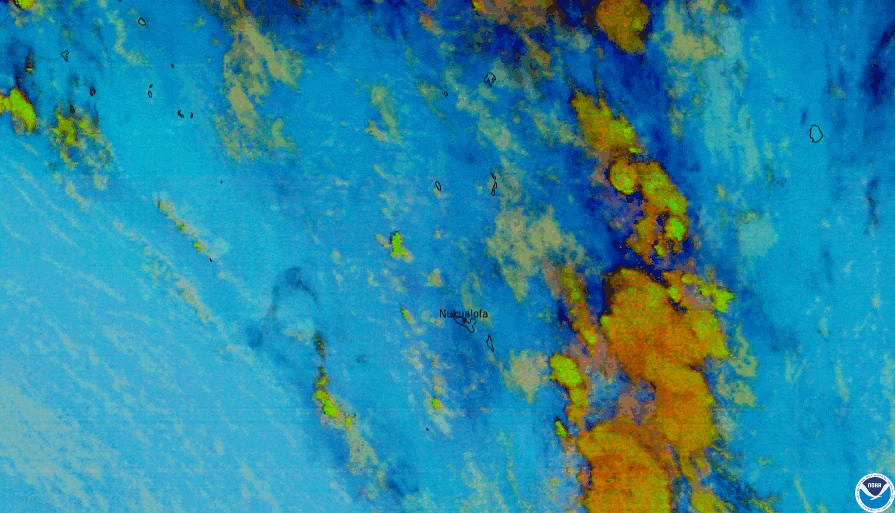4-foot tsunami hits Tonga after explosive eruption of underwater volcano
The blast sent ash and steam more than 12 miles into the air.

A tsunami triggered by the explosive eruption of the underwater Tonga volcano in the Pacific Ocean slammed the shoreline of the Pacific nation Saturday (Jan. 15), sending residents rushing for higher ground, according to news reports.
A 4-foot-tall (1.2 meters) tsunami reportedly hit Tonga's capital of Nuku’alofa, which is about 40 miles (65 kilometers) south of the underwater volcano.
Related: 10 incredible volcanoes in our solar system
There have been no reports of injuries, because communication with the nation went down after the eruption, The Associated Press reported. But a local resident said she was inside making dinner when she heard the eruption at about 7 p.m. local time Saturday. "It was massive, the ground shook, our house was shaking. It came in waves, my younger brother thought bombs were exploding nearby," Taufa told Stuff.co.nz, a New Zealand news outlet.
Such intense blasts have the potential to produce tsunamis far from the source. In fact, a tsunami advisory was in effect for the U.S. Pacific Coast and Hawaii, with officials advising people to avoid the beaches and coastline. The Tonga Meteorological Service issued tsunami warnings (which is stronger than an "advisory") for Fiji and Samoa, The New York Times reported.

Local officials said the powerful underwater eruption had a radius of 161.5 miles (260 km), and sent ash, steam and gas more than 12 miles (20 km) into the air, according to the National Oceanic and Atmospheric Administration (NOAA). The eruption was seven times more powerful than the most recent one of the same volcano on Dec. 20, 2021, NOAA said.
"This is a pretty big event — it's one of the more significant eruptions of the last decade at least," Shane Cronin, a volcanologist at the University of Auckland, told the BBC.
Get the Space.com Newsletter
Breaking space news, the latest updates on rocket launches, skywatching events and more!
This article will continue to be updated as more information comes out.
Join our Space Forums to keep talking space on the latest missions, night sky and more! And if you have a news tip, correction or comment, let us know at: community@space.com.


